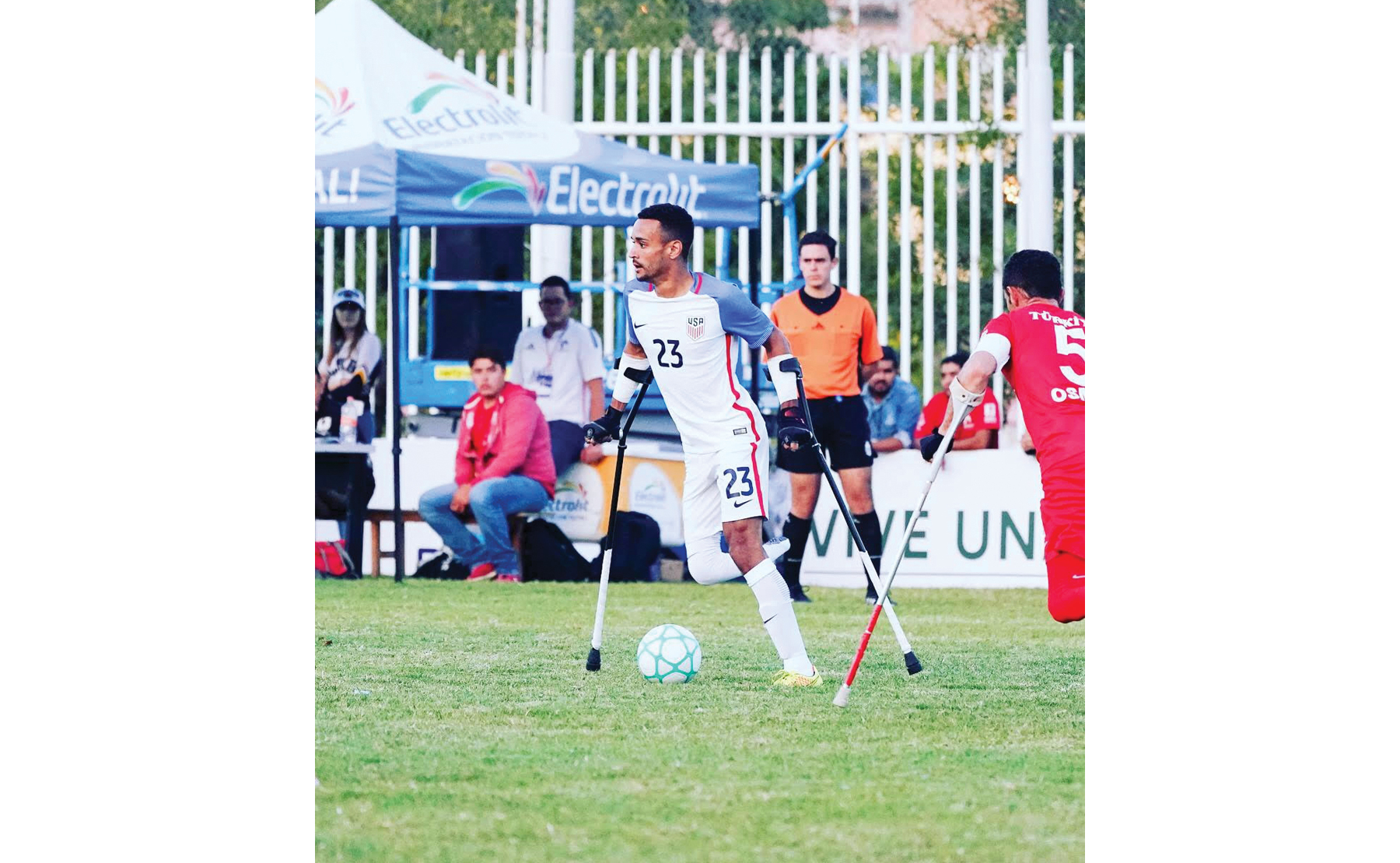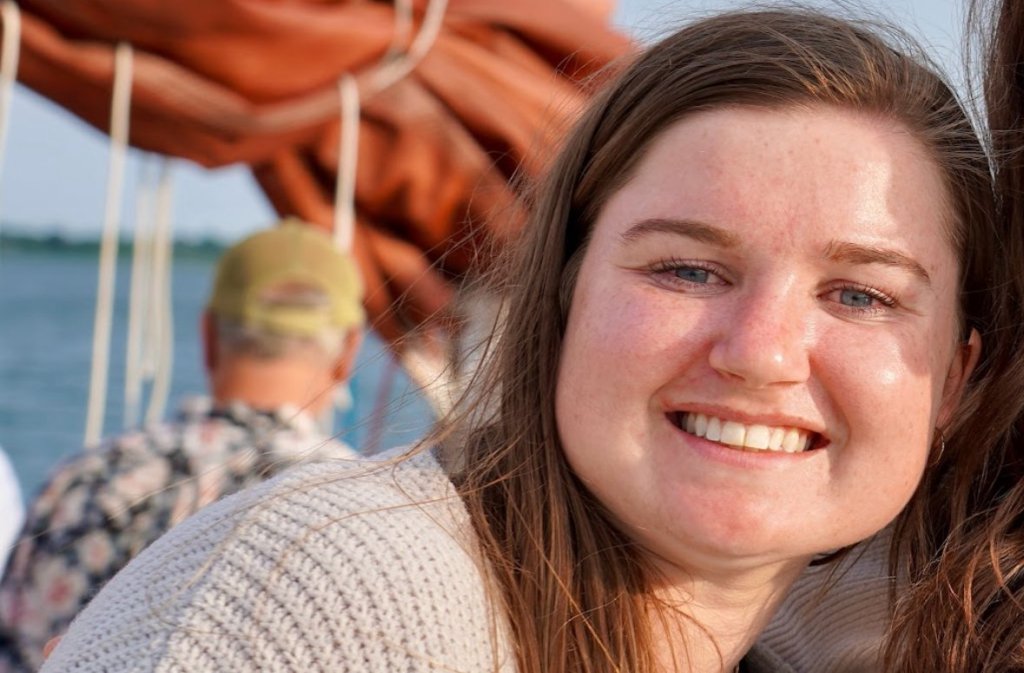Defining One’s Own Limitations

There are two types of people in the world, according to Jovan Booker, a 25-year-old from Cutchogue who recently competed on the U.S. National Amputee Soccer Association’s World Cup team in Mexico. There are people who decide what they can or can’t do and then there are those who realize the only limitations in life are the ones people place upon themselves.
“Anything is possible,” said Booker. “There are no barriers to what your potential is. There’s only how far you want to take something. It’s the path you take — and how you choose to move up — that is really going to define who you are.”
Booker, who is a waiter at Little Lucharitos restaurant in Aquebogue as well as a motivational speaker, is a classic case study of those who turn a loss into a gain. Though a birth defect required the amputation of one leg below the knee when he was only 10 months old, Booker sees how it ended up helping his career.
“I wouldn’t be able to function without a wheelchair if I didn’t get my leg amputated, so for me, obviously growing up was hard, but it’s not like I had to function after having a leg for so long or have to know what it’s like, even after amputation, to still have pain or be able to correctly walk,” he said. “I hit the ground running.”
Amputee soccer teams have seven players who compete without the use of prosthetics. Six of the players are without part or all of one leg, and each goalkeeper is missing part or all of one arm. Those with paralyzed limbs have them taped against their bodies to avoid a blocking advantage. The use of crutches further levels the playing field between athletes with various amputations.
“The crutches act, essentially, as an extension of your hand, so you can’t use your crutches to touch the ball, obstruct a shot. You can’t do anything like that. They’re more or less your hands,” said Booker, who had only used crutches a few times before trying out for the national team in Texas last June. “I had metal clunker crutches that weren’t even real crutches that you should be using for amputee soccer,” he said. “I didn’t really know how to move around on them, but I knew I wasn’t going to let the crutches defeat me because that’s the entire game: being comfortable on the crutches. So I was going to go out and I was going to go as hard as I can and try to do as much as I could skill-wise.”
Booker ultimately made the team alongside Robert Rodriguez, 31, of Bay Shore and Carlos Ayala, 30, of Brentwood, all of whom traveled to San Juan de los Lagaos to represent the U.S. under head coach and Booker’s lifelong prosthetist, Dr. Eric Lamberg of Stony Brook University.
“Immediately when we got to Mexico, we got on a bus with the Brazilian team and drove for three hours,” said Booker, who is no stranger to traveling for sports with the Amp 1 basketball team. “It was the first time I was on a legitimate national team riding around on a bus in another country with another team listening to their music. It was kind of awkward because we hadn’t played a game yet, so everyone had a chip on their shoulder. We all wanted to come in and do really well.”
The U.S. team was able to advance high in the group stages but lost its first game to Kenya 2-1. “We had actually scored first, so it was a really exciting game, but it was our first World Cup game ever, and a lot of us were not ready for the pressure or, physically, to have the stamina to play a whole game,” Booker said. Playing conditions also proved to be a challenge. “I couldn’t really play that much because I was cramping up and it was so tough to breathe at the high elevation,” he said.
But the experience of playing for as many as 10,000 fans was a magical one for Booker, who watched in awe as a group of young children attempted their own version of amputee soccer.
“It gave me the chills seeing them hop on one leg and have the keeper take one arm and put it in his sleeve to emulate us,” he said. “It was such a special feeling because they’re not only out there playing, they’re out there playing and talking about how, ‘This is kinda hard,’ but it’s fun to them and they’re doing something together. It’s so important because now if they see somebody who is missing a limb, they will understand what it is to be that person.”
Booker is looking forward to helping the team send stronger representation to the next World Cup games in four years, as well as advance the popularity of amputee soccer, with hopes it will one day become a Paralympic sport.



